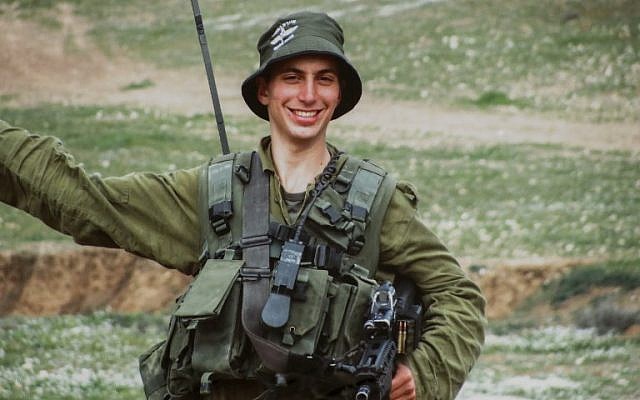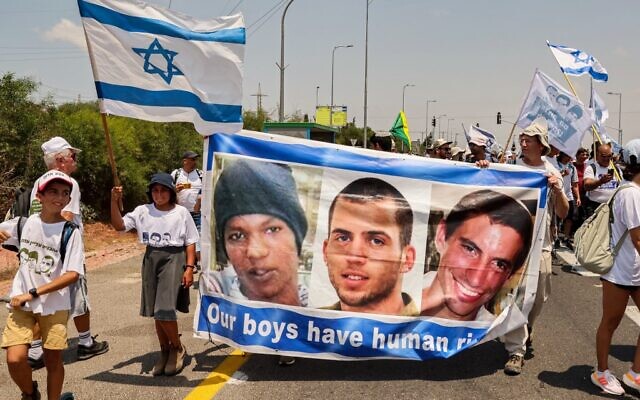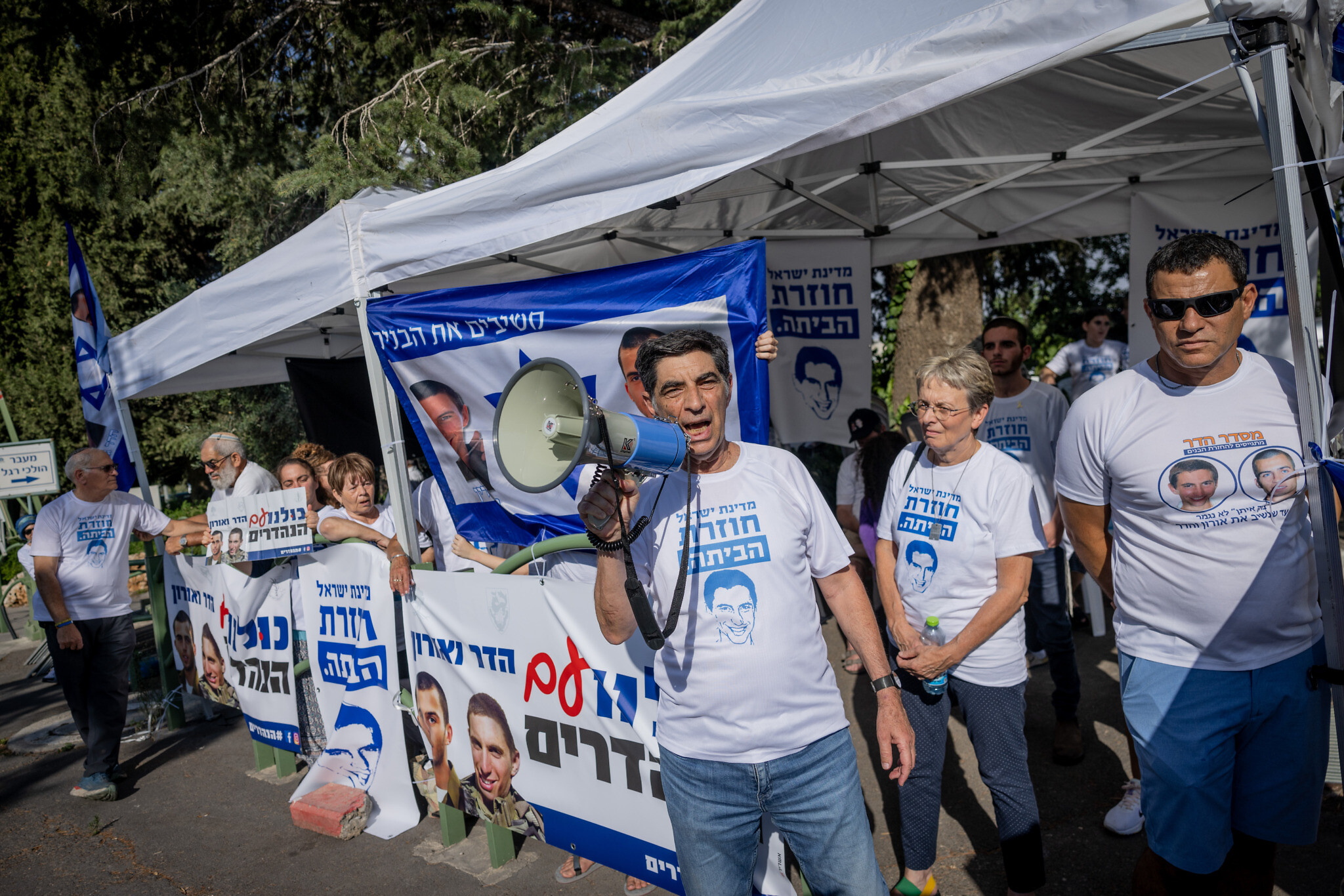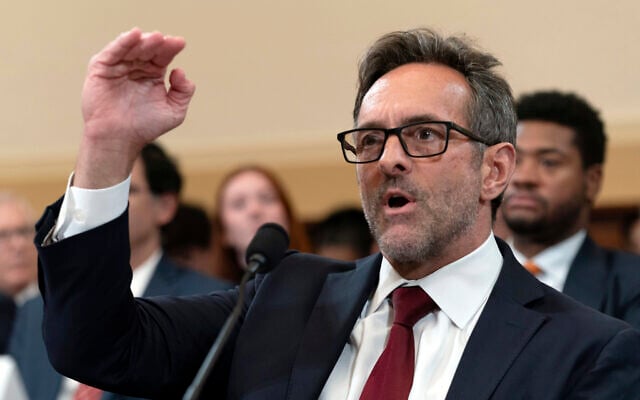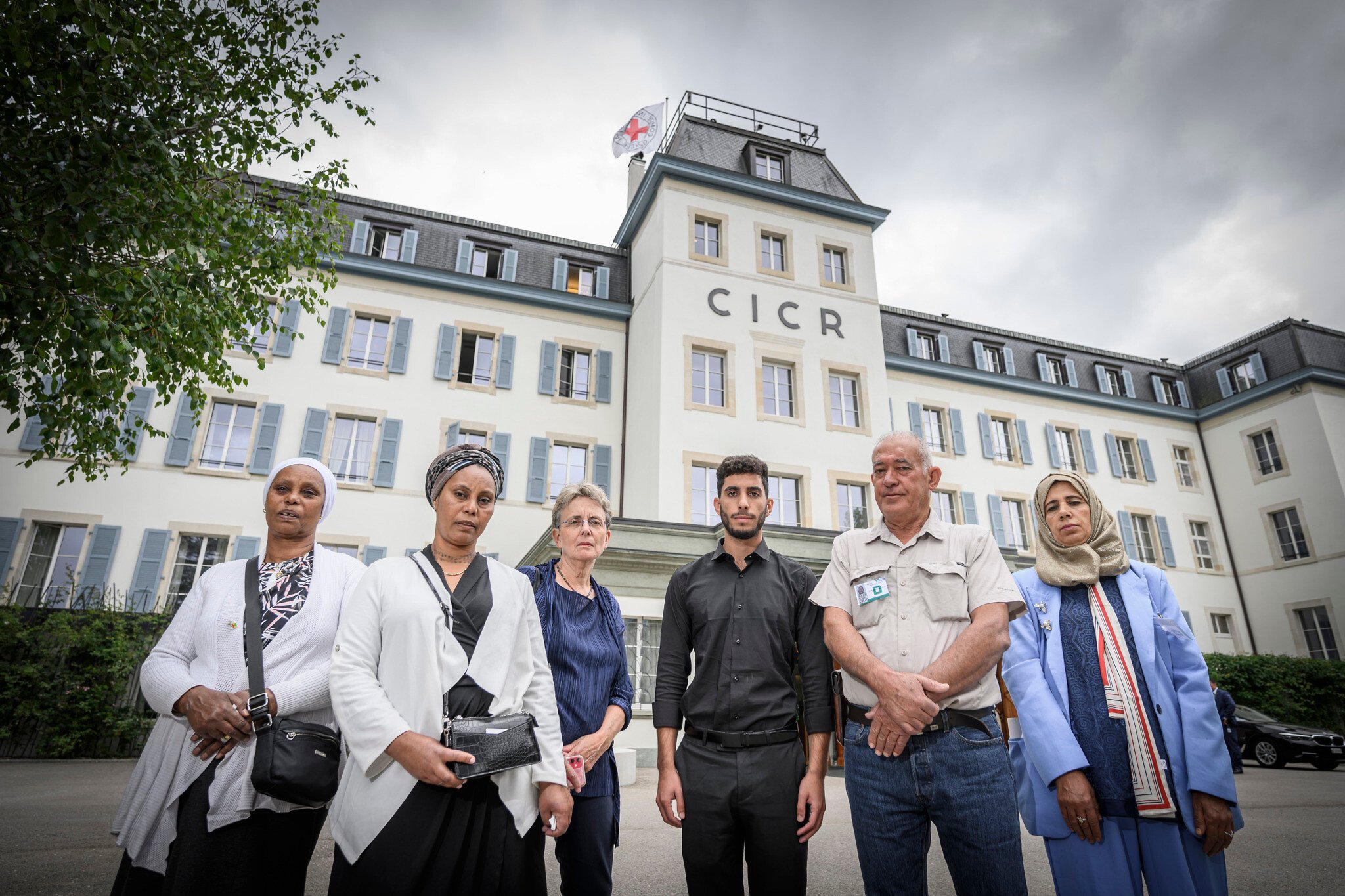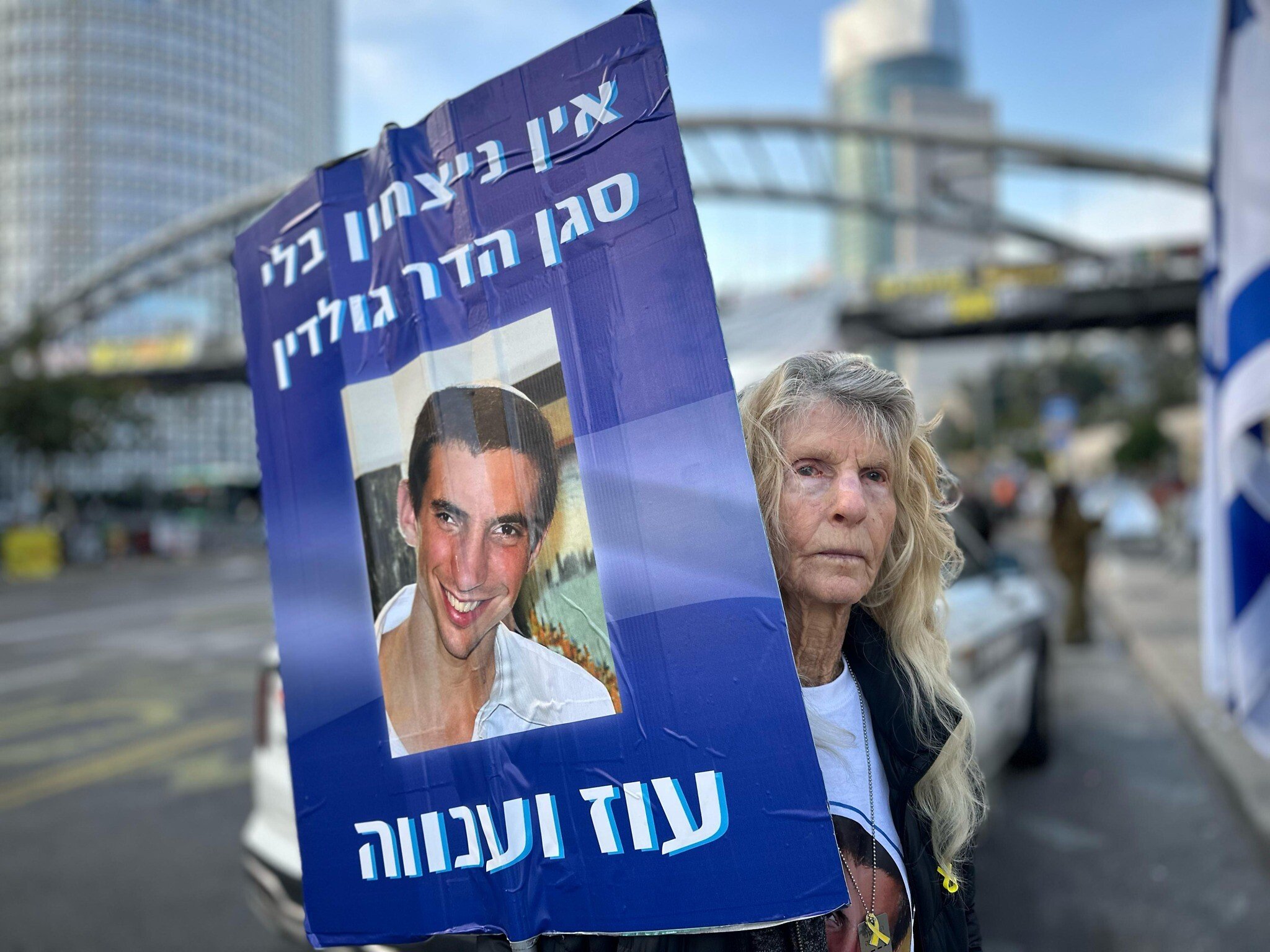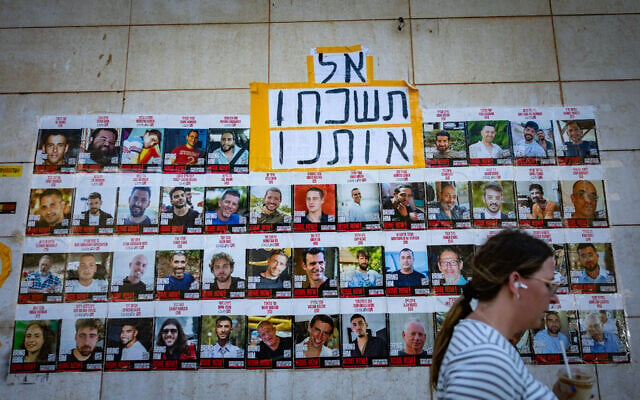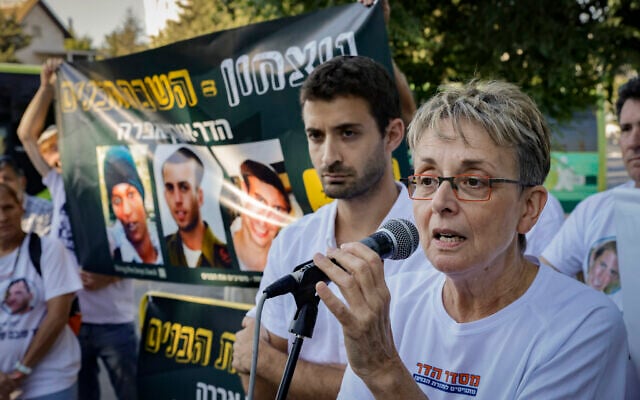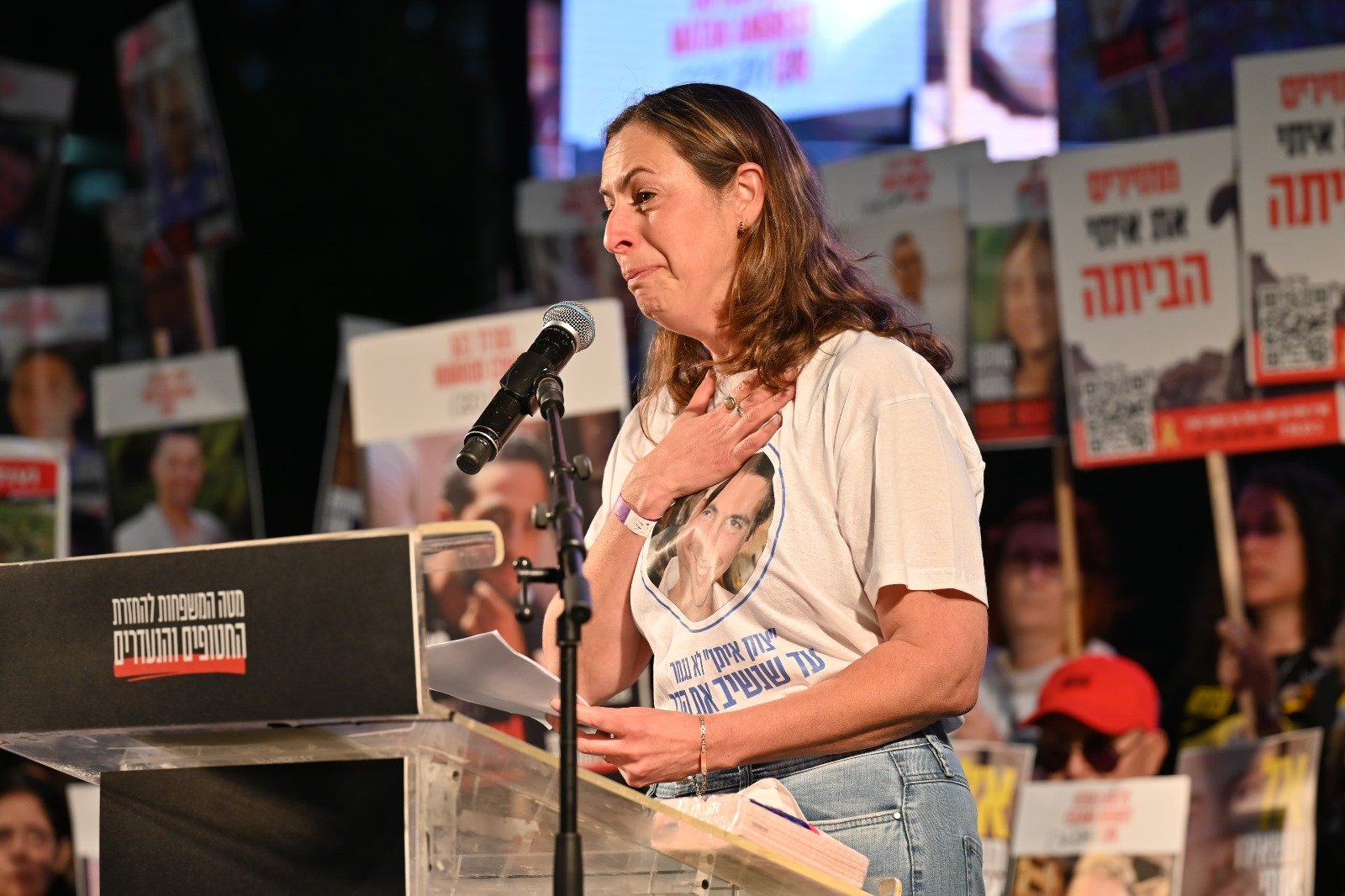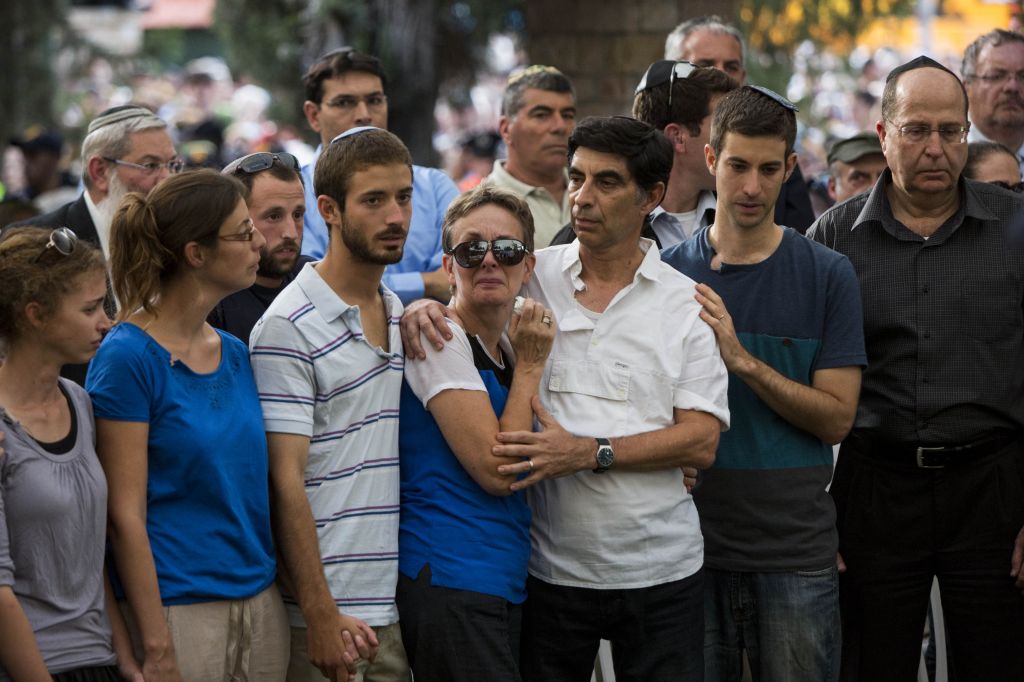


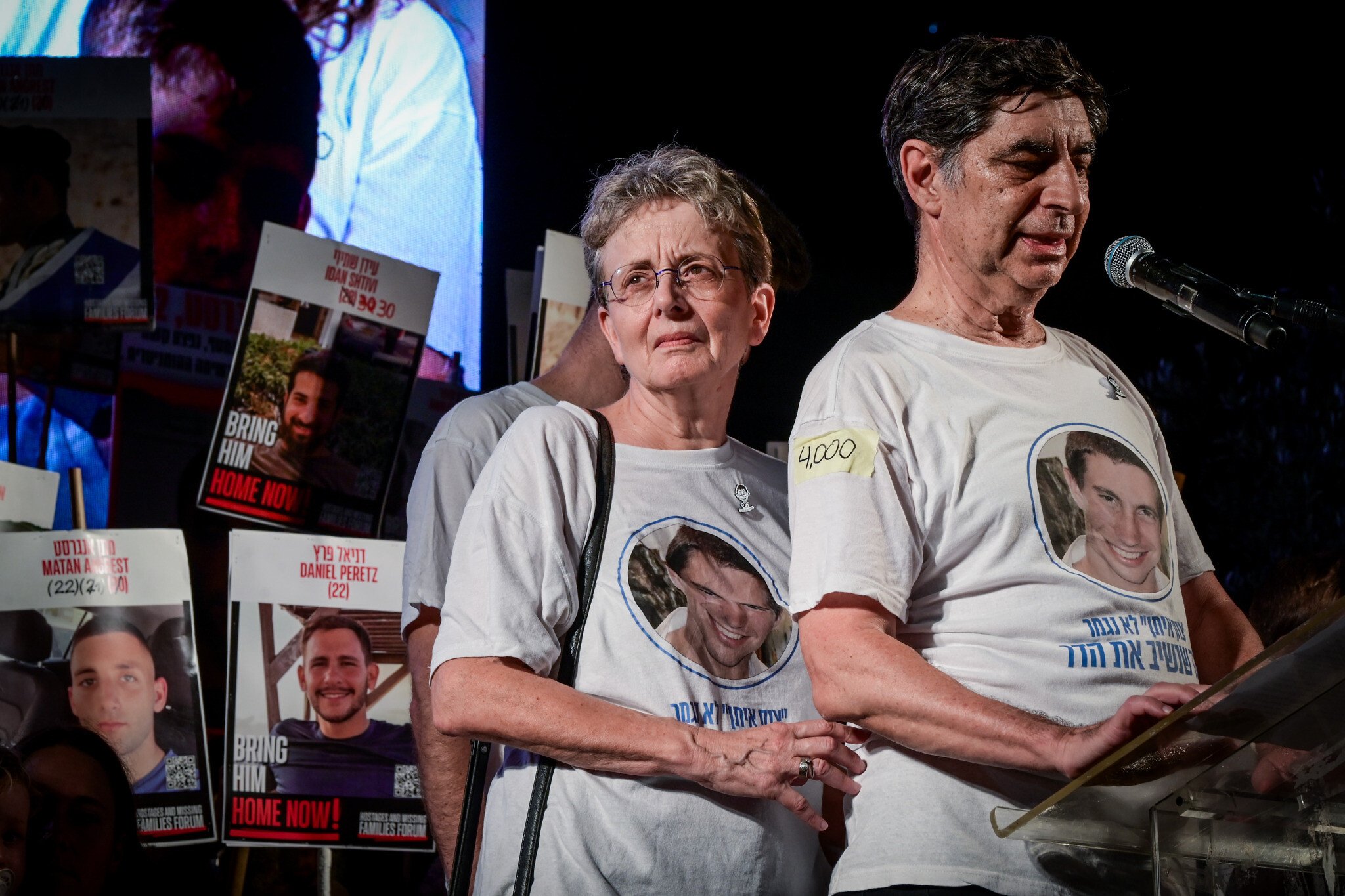
Of the 50 Israelis, alive and deceased, held hostage in the Gaza Strip, only one has been there more than 664 days, the amount of time that has passed since the October 7, 2023, Hamas attack.
On August 1, the family of soldier Hadar Goldin will mark exactly 11 years since he was killed and taken captive by Hamas operatives.
“I can’t grasp it,” his mother Leah Goldin told The Times of Israel in a recent interview. “It’s more than a decade, it’s an entire generation.”
On August 1, 2014, Hadar, a 23-year-old officer in the Givati Brigade, was killed when Hamas gunmen opened fire on a group of soldiers in southern Gaza, hours into a humanitarian ceasefire brokered by the UN and US during the 2014 war. Hamas operatives managed to grab his body and drag it into a tunnel.
A day later, the Israel Defense Forces announced that it had concluded that Goldin had been killed in combat before being abducted, posthumously promoting him to the rank of lieutenant.
Since that tragic day, Leah Goldin, a software engineer by profession, has become a voluble, fierce advocate for her son. She, her husband Simha Goldin, and their three surviving children, including Hadar’s twin brother Tzur, have continued moving forward with their lives.
Weeks before Goldin’s remains were abducted, Hamas fighters seized the body of Oron Shaul, who was killed alongside six other soldiers when their armored personnel carrier was hit by rocket-propelled grenades in northern Gaza.
For years their fates were tied together, alongside those of Averu Mengistu and Hisham al-Sayed, two Israelis apparently suffering mental distress who entered Gaza of their own volition in 2014 and 2015, respectively, and then were held by Hamas.
On October 7, 2023, the number of abducted Israelis in Gaza swelled as Hamas terrorists rampaged through Israeli communities, army bases and a music festival, killing 1,200 people and kidnapping 251.
Suddenly the small cadre of hostages’ families, of which the Goldins were often the most vocal, became a cacophonous nationwide society.
In the nearly 22 months since the attack, 202 of those kidnapped on October 7 have been brought back, not all of them alive. Shaul, Mengistu and al-Sayed have also returned — the soldier’s body recovered by troops in January, and the two other released as part of a ceasefire deal weeks later.
Before the October 7 attack, few in Israel would have believed the campaign of killings and mass abductions possible. But for the Goldins, the idea that hundreds could be taken hostage was not much of a shock.
“It hurts to say that it didn’t surprise us,” said Leah Goldin.
In the immediate aftermath of the attack, the family, which had been in regular contact with political and religious leaders, hostage envoys, and military attaches for years, became an invaluable resource for relatives of those who had been dragged into Gaza.
“We were all on the phone,” said Goldin. “Everyone called us.”
To help the families suffering mental shock and anguish, the Goldins reached out to the PTSD treatment organization Psagot Institute and gathered 2,000 volunteers for a call center to gather information and create a list of hostages from among the names of the missing.
They also began working every contact they knew who could help with freeing the hostages, including Roger Carstens, who served as the special presidential envoy for hostage affairs in the US State Department.
While Hadar wasn’t a US citizen, his killing during a ceasefire brokered by the US made him an American interest.
“I’ve been in touch with Roger Carstens for years,” said Goldin. “It was a way to open the door.”
Within days, a former politician and public relations executive, Ronen Tsur, took charge of what became the Hostages and Missing Families Forum, and the Goldins handed him the lists they had compiled. The thinking was that a forum of over 250 families would wield more power to move the government to bring the hostages home.
Initially, though, the Goldins, Shauls, Mengistus and al-Sayeds were left out of the Forum.
“They thought everyone was coming back,” said Goldin. “They thought we were the bad example of what can happen.”
She recalled that lists of those abducted on October 7 failed to even note that four others were also being held in Gaza, an issue they took to heart.
According to Goldin, the IDF initially refused to include them, telling the families that “Hadar and Oron are a different matter.”
“For us, that was worse than October 7. And we didn’t accept it,” she said.
Eventually, after intense lobbying, including appeals to former IDF chief and then-cabinet member Gadi Eisenkot and then-defense minister Yoav Gallant, the decision was reversed.
“It’s a wound that we still feel,” said Goldin.
Even now, she still checks every time the hostages are mentioned in the news to make sure Hadar is included in the count.
Today, terror groups in the Gaza Strip still hold 50 hostages — Goldin and 49 of those taken on October 7. Of the 50, Goldin and 27 others are confirmed dead by the IDF, and there are grave concerns that two others may also have perished. Twenty hostages are believed to be alive, Israeli officials have said.
This week, negotiations for the potential release of 10 living and 18 deceased hostages as part of a 60-day ceasefire in Gaza mediated by the US, Qatar and Egypt were at a standstill, with Prime Minister Benjamin Netanyahu and others accusing Hamas of refusing to negotiate in good faith.
“We haven’t stopped trying,” Netanyahu said Tuesday of efforts to reach a deal despite his decision last week to pull negotiators from the talks in Doha. “But there is one major obstacle, and everyone knows it — Hamas. It remains obstinate in its refusal.”
The comments came a day after US President Donald Trump predicted that Hamas would never willingly release the final living hostages. Last week US Special Envoy to the Middle East Steve Witkoff said Washington and Jerusalem would explore “alternative options” to free the hostages.
But critics accuse the government of being unwilling to end the war and prioritizing military action or reconquest and resettlement of Gaza over freedom for the hostages.
“Today I say that even 251 hostages isn’t enough to cause the decision makers to bring them back without all the nonsense,” said Goldin. “We have a deep, deep problem, and it’s the fault of the decision makers, which is what I call them because they’re not leaders. They’ve lost the values of this country.”
Goldin didn’t name Netanyahu, but referred to him as “the hand directing everything that has happened in the last 11 years.” Netanyahu was the country’s leader in 2014 when her son was killed and taken captive and has remained in power since, aside from an 18-month stint in the opposition in 2021-2022.
“It’s the same hand that isn’t bringing back our kids and the same hand that is cursing every opportunity,” she said. “We’re in a Jewish country in which everyone seems to have forgotten the Jewish value of bringing back a corpse. The rabbis, the IDF, the ethos of Zionism, of not leaving soldiers behind, the value of human rights — it’s just been forgotten.”
Goldin said Israel should be putting the hostage issue front and center in all of its diplomatic activity, especially it pursues the possibility of normalization with Saudi Arabia, claiming that Riyadh has direct influence over the patrons of Hamas’s terrorist regime in Gaza.
“I’d go to Saudi Arabia tomorrow to see who I could talk to, but I can’t with my Israeli passport,” she said.
Goldin noted that UN Security Council Resolution 2474 required the Iranian regime to enable the return of the remains of missing persons, since it is a party to the regional conflict waged against Israel.
“But no one in Israel is asking for that,” she argued.
While lobbying for the release of her son’s remains for burial, Goldin has continued to work, lecturing and consulting in her field of software engineering; her husband still teaches history at Tel Aviv University.
“We’re humans, we want to stay part of the community and society, and from our perspective, life continues,” said Goldin. “We continue to smile, we continue to live our lives with all the pain and the hard work.”
When she has a hard time motivating herself, she said she thinks about some of Hadar’s sayings, including the notes he wrote to soldiers serving under him and to youth group campers when he was a counselor.
One of her son’s sayings was that life gives people the chance to handle their own issues and to do great things.
A week before Hadar was killed, Goldin recalled, the family held a get-together to mark his upcoming wedding on Kibbutz Alumim, a religious community near the Gaza border. They chose the location because it was easier for him to reach from the battlefield as war raged in the Strip.
Nine years later, Hamas-led terrorists stormed the kibbutz, killing and kidnapping over two dozen foreign workers on its outskirts. As the terrorists moved toward residential areas, the kibbutz’s security team rushed to halt the attackers’ advance, battling them alongside soldiers and police in a small shaded park that had been named in Hadar Goldin’s memory, and thwarting the onslaught.
Members of the security team “told us they felt that Hadar was with us,” Goldin relayed.
“People say to me they’re sorry they didn’t pay attention to Hadar before October 7,” she said. “I don’t need that, or to hear ‘The Goldins were right.'”
“Instead,” she added, “use that knowledge to correct this situation.”

